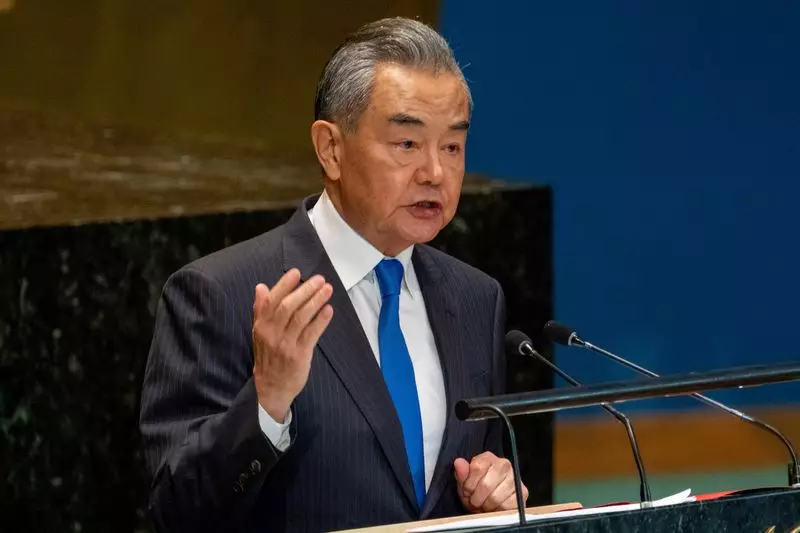In an increasingly multipolar world, China’s diplomatic maneuvers in Africa are evolving to assert its influence amidst the reduced presence of Western powers. This was exemplified by the recent tour of African nations by China’s top diplomat, Foreign Minister Wang Yi. This annual tradition, now spanning 35 years, underscores China’s long-term commitment to strengthening ties with resource-rich African countries, particularly as Europe and the United States grapple with their own domestic challenges and foreign policies. As global attention fluctuates, Wang’s travels through Namibia, the Republic of Congo, Chad, and Nigeria reflect both a consistency in China’s foreign relations and a strategic approach to expanding its foothold on the continent.
Wang Yi’s diplomatic journey is not just a ceremonial visit but a strategic initiative to bolster economic cooperation between China and African nations. Amid slowing economic growth at home, China is increasingly viewing Africa as a vital market for its surplus products and an avenue for its infrastructure development firms, which are facing project shortages due to local governments’ debt constraints. The cooperation agreement reinforces China’s interest in acquiring critical minerals necessary for its burgeoning industries, including electric vehicle manufacturing and solar energy technologies.
The depth of engagement is also mirrored in financial commitments. Just last year, China pledged a substantial $51 billion in fresh financial assistance aimed at enhancing developmental projects across Africa. This promises to provide much-needed resources to a continent struggling with economic challenges, presenting Beijing as a reliable partner in development when contrasted with the erratic policies of Western nations.
China’s consistent approach stands in stark contrast to the actions of Western powers, particularly the United States and the European Union. U.S. President Joe Biden’s singular visit to sub-Saharan Africa during his presidency highlights a perceived neglect in fostering diplomatic ties with this critical region. In contrast, China prioritizes Africa in its foreign agenda, using Wang’s visits as a platform to solidify partnerships and empower economic growth.
Furthermore, the narrative crafted by Chinese officials emphasizes a partnership model based on mutual respect and non-interference in domestic affairs. Analysts point out that this approach resonates with African leaders, who often feel pressured by the conditionalities attached to Western assistance, which can include human rights stipulations and governance reforms.
Beijing’s growing presence in Africa also extends to vital multilateral avenues. China’s 50-plus votes in the United Nations provide significant leverage in reshaping global norms that align more closely with its geopolitical interests. The push towards reforming these institutions aims at presenting an alternative to existing power structures that are often dominated by Western nations.
The Asian giant’s strategic support for candidates within the African Union showcases its desire to enhance its influence within important regional frameworks. Observers note that candidates vying for leadership positions within these bodies often highlight China’s role in catalyzing African development, from manufacturing capabilities to education.
Apart from economic dynamics, China is beginning to assert itself on vital security issues troubling Africa. Wang Yi’s visit to Chad is particularly significant, given the recent withdrawal of French military forces from the nation amidst an evolving security environment characterized by the threat of Islamist militants. By positioning itself as a partner in regional safety, China aims to complement its economic initiatives with guarantees of stability, thereby creating a holistic framework for cooperation that is appealing to African leaders.
As China’s annual diplomatic ritual unfolds, it becomes abundantly clear that this engagement is not merely about securing resources or markets. Rather, it represents a comprehensive strategy aimed at redefining international relationships, fostering economic growth, and enhancing security cooperation in Africa amidst a backdrop of shifting global dynamics. China’s steadfast commitment may well position it as a central pillar of African development for years to come, establishing a paradigm that could reshape the future of international relations on the continent.

